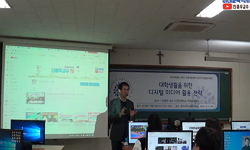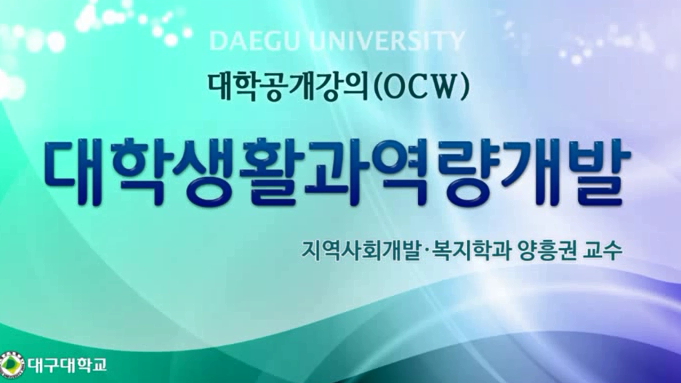This study conducted an online self-report questionnaire for 289 university students nationwide to verify the moderating effect of social support in the effect of relative deprivation on subjective well-being. A total of 289 questionnaires were distri...
http://chineseinput.net/에서 pinyin(병음)방식으로 중국어를 변환할 수 있습니다.
변환된 중국어를 복사하여 사용하시면 됩니다.
- 中文 을 입력하시려면 zhongwen을 입력하시고 space를누르시면됩니다.
- 北京 을 입력하시려면 beijing을 입력하시고 space를 누르시면 됩니다.
대학생의 상대적 박탈감이 주관적 안녕에 미치는 영향 : 사회적 지지의 조절 효과 = The Effects of a Relative of Deprivation on Subjective Well-Being of College Student
한글로보기부가정보
다국어 초록 (Multilingual Abstract)
289 university students nationwide to verify the moderating
effect of social support in the effect of relative deprivation on
subjective well-being. A total of 289 questionnaires were
distributed and collected. No inappropriate responses were found
among the questionnaires collected, so all 289 copies were used
in the analysis of this study.
The collected data were analyzed using the SPSS 22.0 and
PROCESS MACRO 4.3 programs. The results of this study are
as follows.
First, relative deprivation showed a significant negative effect
on their subjective well-being.
Second, social support significantly modulated the relationship
between relative deprivation and subjective well-being. In other
words, this means that the impact of relative deprivation on
subjective well-being varies significantly depending on the level
of social support.
Lastly, social support was divided into low, middle and high
groups and the significance of the indirect effect at each level
was verified. As a result, subjective well-being was lowered in
cases where social support was low and relative deprivation
was high, but the group with high social support had no effect.
In summary, in the group with low social support, subjective
well-being decreased as relative deprivation increased, but as
social support increased, the effect of subjective well-being on
relative deprivation was not significant. In other words, in order
to prevent subjective well-being from lowering due to relative
deprivation, it is necessary to develop and utilize related
education and programs to increase social support of college
students
This study conducted an online self-report questionnaire for
289 university students nationwide to verify the moderating
effect of social support in the effect of relative deprivation on
subjective well-being. A total of 289 questionnaires were
distributed and collected. No inappropriate responses were found
among the questionnaires collected, so all 289 copies were used
in the analysis of this study.
The collected data were analyzed using the SPSS 22.0 and
PROCESS MACRO 4.3 programs. The results of this study are
as follows.
First, relative deprivation showed a significant negative effect
on their subjective well-being.
Second, social support significantly modulated the relationship
between relative deprivation and subjective well-being. In other
words, this means that the impact of relative deprivation on
subjective well-being varies significantly depending on the level
of social support.
Lastly, social support was divided into low, middle and high
groups and the significance of the indirect effect at each level
was verified. As a result, subjective well-being was lowered in
cases where social support was low and relative deprivation
was high, but the group with high social support had no effect.
In summary, in the group with low social support, subjective
well-being decreased as relative deprivation increased, but as
social support increased, the effect of subjective well-being on
relative deprivation was not significant. In other words, in order
to prevent subjective well-being from lowering due to relative
deprivation, it is necessary to develop and utilize related
education and programs to increase social support of college
students
국문 초록 (Abstract)
서 사회적 지지의 조절 효과를 검증하기 위해 전국 대학생 289명을 대상
으로 온라인을 자기보고식 설문조사를 하였다. 총 289부의 설문을 배부
하였고, 모두 회수하였다. 회수한 설문지 중에 부적절하게 응답한 설문지
는 발견되지 않아, 289부 모두 본 연구의 분석에 사용되었다.
수집된 자료는 SPSS 22.0과 PROCESS MACRO 4.3 프로그램을 사용
하여 분석하였다. 본 연구의 결과는 다음과 같다.
첫째, 대학생의 상대적 박탈감은 주관적 안녕에 유의한 부적 영향을
미치는 것으로 나타났다. 즉, 상대적 박탈감을 높게 경험할수록 대학생의
주관적 안녕은 낮아지는 것으로 나타났다.
둘째, 상대적 박탈감과 주관적 안녕 간의 관계에서 사회적 지지의 조
절 효과를 검증한 결과, 사회적 지지는 상대적 박탈감과 주관적 안녕과
의 관계에서 유의하게 조절하였다. 즉, 사회적 지지의 수준에 따라 상대
적 박탈감이 주관적 안녕에 미치는 영향이 유의미하게 달라짐을 의미한
다. 마지막으로 사회적 지지를 저중고 집단으로 구분하여 각 수준별 간접
효과의 유의성을 검증하였다. 그 결과 사회적 지지가 낮고 상대적 박탈
감이 높은 경우에는 주관적 안녕이 낮아졌지만, 사회적 지지가 높은 집
단은 영향력이 나타나지 않았다.
이를 종합해보면, 사회적 지지가 낮은 경우 상대적 박탈감이 높을수록
주관적 안녕이 낮아지나, 사회적 지지가 높아질수록 상대적 박탈감에 대
한 주관적 안녕의 영향이 유의하지 않는 것으로 나타났다. 즉, 대학생의
주관적 안녕을 높이기 위한 방안으로 다양한 형태의 사회적 지지를 제공
하는 것이 필요하고, 이를 위해 대학에서의 교육 및 프로그램의 개발 및
활용이 필요함을 알 수 있다.
본 연구는 대학생의 상대적 박탈감이 주관적 안녕에 미치는 영향력에 서 사회적 지지의 조절 효과를 검증하기 위해 전국 대학생 289명을 대상 으로 온라인을 자기보고식 설문조사를 하였다. ...
본 연구는 대학생의 상대적 박탈감이 주관적 안녕에 미치는 영향력에
서 사회적 지지의 조절 효과를 검증하기 위해 전국 대학생 289명을 대상
으로 온라인을 자기보고식 설문조사를 하였다. 총 289부의 설문을 배부
하였고, 모두 회수하였다. 회수한 설문지 중에 부적절하게 응답한 설문지
는 발견되지 않아, 289부 모두 본 연구의 분석에 사용되었다.
수집된 자료는 SPSS 22.0과 PROCESS MACRO 4.3 프로그램을 사용
하여 분석하였다. 본 연구의 결과는 다음과 같다.
첫째, 대학생의 상대적 박탈감은 주관적 안녕에 유의한 부적 영향을
미치는 것으로 나타났다. 즉, 상대적 박탈감을 높게 경험할수록 대학생의
주관적 안녕은 낮아지는 것으로 나타났다.
둘째, 상대적 박탈감과 주관적 안녕 간의 관계에서 사회적 지지의 조
절 효과를 검증한 결과, 사회적 지지는 상대적 박탈감과 주관적 안녕과
의 관계에서 유의하게 조절하였다. 즉, 사회적 지지의 수준에 따라 상대
적 박탈감이 주관적 안녕에 미치는 영향이 유의미하게 달라짐을 의미한
다. 마지막으로 사회적 지지를 저중고 집단으로 구분하여 각 수준별 간접
효과의 유의성을 검증하였다. 그 결과 사회적 지지가 낮고 상대적 박탈
감이 높은 경우에는 주관적 안녕이 낮아졌지만, 사회적 지지가 높은 집
단은 영향력이 나타나지 않았다.
이를 종합해보면, 사회적 지지가 낮은 경우 상대적 박탈감이 높을수록
주관적 안녕이 낮아지나, 사회적 지지가 높아질수록 상대적 박탈감에 대
한 주관적 안녕의 영향이 유의하지 않는 것으로 나타났다. 즉, 대학생의
주관적 안녕을 높이기 위한 방안으로 다양한 형태의 사회적 지지를 제공
하는 것이 필요하고, 이를 위해 대학에서의 교육 및 프로그램의 개발 및
활용이 필요함을 알 수 있다.
목차 (Table of Contents)
- Ⅰ. 서 론 ··············································································································· 1
- 1. 연구의 필요성 및 목적 ··············································································· 1
- 2. 연구 문제 ······································································································· 6
- 3. 용어의 정의 ··································································································· 7
- Ⅱ. 이론적 배경 ·································································································· 9
- Ⅰ. 서 론 ··············································································································· 1
- 1. 연구의 필요성 및 목적 ··············································································· 1
- 2. 연구 문제 ······································································································· 6
- 3. 용어의 정의 ··································································································· 7
- Ⅱ. 이론적 배경 ·································································································· 9
- 1. 주관적 안녕 ··································································································· 9
- 2. 상대적 박탈감과 주관적 안녕 ······························································· 11
- 3. 상대적 박탈감, 사회적 지지 및 주관적 안녕 ······································ 14
- Ⅲ. 연구방법 ······································································································ 17
- 1. 연구대상 ······································································································· 17
- 2. 측정도구 ······································································································· 18
- 3. 자료 처리 및 분석 ····················································································· 21
- Ⅳ. 연구결과 ······································································································ 22
- 1. 주요 변인들의 기술통계 및 상관분석 ··················································· 22
- 2. 상대적 박탈감과 주관적 안녕 간의 관계에서 사회적 지지의 조절 효과 검증 ···································································································· 23
- Ⅴ. 결론 및 논의 ······························································································ 26
- 참고문헌 ············································································································ 30
- 부록 ···················································································································· 37
- 부록1. 설문안내 및 동의서 37
- 부록2. 주관적 안녕 척도 38
- 부록3. 상대적 박탈감 척도 40
- 부록4. 사회적 지지 척도 42
- Abstract ············································································································ 44












